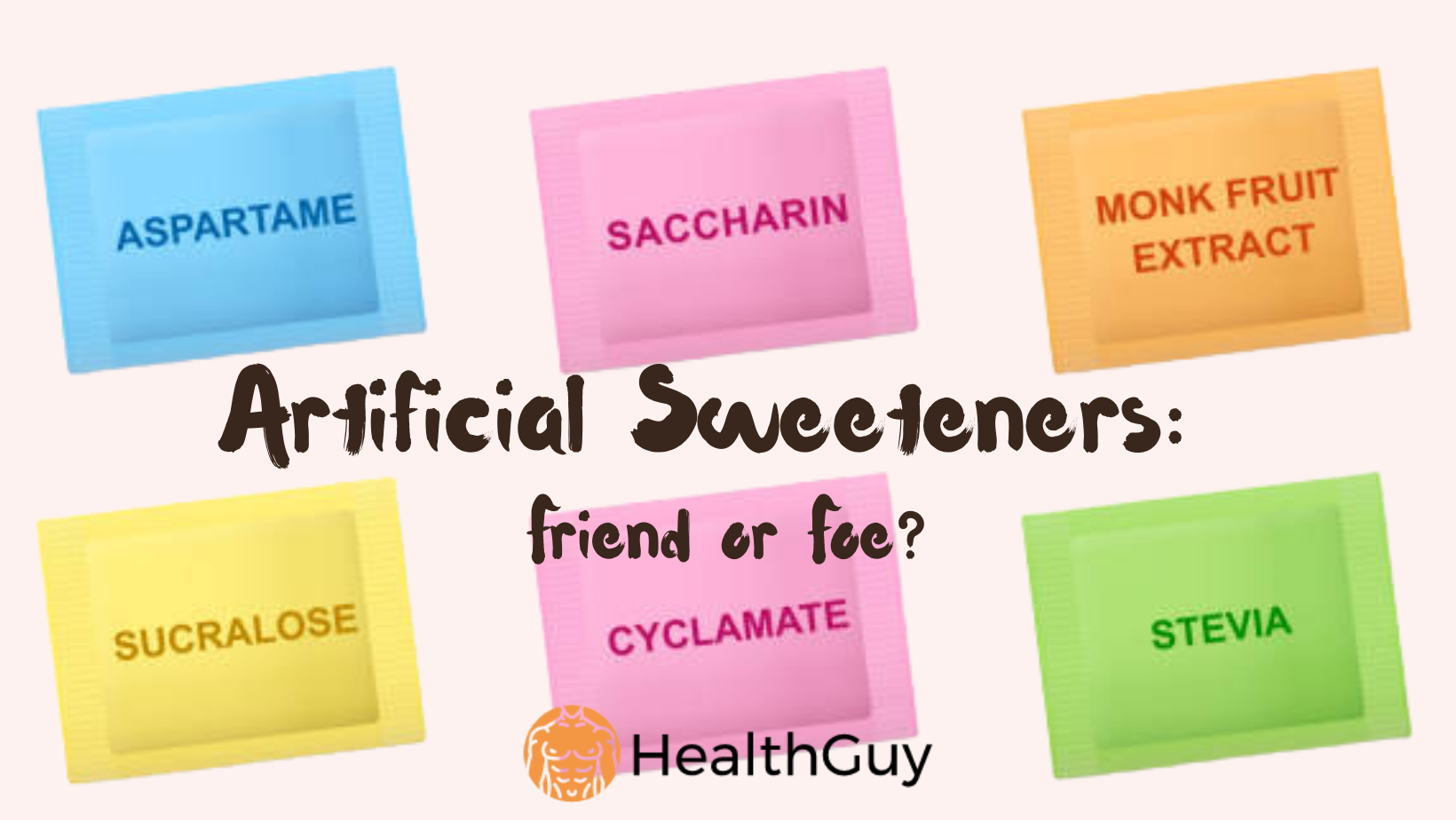
Artificial Sweeteners: Friend or Foe?
Artificial sweeteners are a popular sugar substitute that has become increasingly popular over the years. They are often used in low-calorie or diet products to enhance the taste without adding calories or raising blood sugar levels. In this article, we will explore what artificial sweeteners are, the different types, and their benefits and risks.
What are Artificial Sweeteners?
Artificial sweeteners are synthetic compounds that are used to replace regular sugar in foods and beverages. They are often many times sweeter than sugar, so only small amounts are needed to achieve the same level of sweetness. They are often used in products such as diet sodas, sugar-free candies, and low-calorie baked goods.
Types of Artificial Sweeteners:
There are several types of artificial sweeteners, each with its unique characteristics:
- Aspartame: This is one of the most commonly used artificial sweeteners, and is found in products such as diet sodas, chewing gum, and sugar-free desserts. It is made from two amino acids, phenylalanine and aspartic acid, and is approximately 200 times sweeter than sugar.
- Saccharin: This is the oldest artificial sweetener and is commonly found in tabletop sweeteners, such as Sweet’N Low. It is made from a sulfonamide compound and is approximately 300-500 times sweeter than sugar.
- Sucralose: This is a newer artificial sweetener and is commonly found in products such as Splenda. It is made by chlorinating sugar molecules, which change the chemical structure of the sugar and make it indigestible. Sucralose is approximately 600 times sweeter than sugar.
- Stevia: This is a plant-based sweetener derived from the leaves of the Stevia plant. It is commonly used in natural or organic products. Stevia is approximately 200-300 times sweeter than sugar.
Cancer Risk from Artificial Sweeteners:
There have been concerns about the safety of artificial sweeteners and their link to cancer. Some studies have suggested that consuming large amounts of artificial sweeteners may increase the risk of cancer. However, the majority of scientific studies have shown that artificial sweeteners are safe for human consumption when consumed in recommended amounts.
The American Cancer Society and the National Cancer Institute have both concluded that there is no clear evidence that artificial sweeteners cause cancer in humans. However, it is important to note that excessive consumption of any food or substance, including artificial sweeteners, may have negative health effects.
The Truth About Artificial Sweeteners and Diabetes Risk:
Artificial sweeteners have become increasingly popular as a sugar substitute in recent years, as they are calorie-free and do not raise blood sugar levels. However, there have been concerns about the long-term effects of artificial sweeteners on health, particularly their potential role in the development of diabetes.
Diabetes is a chronic condition that affects the way the body processes blood sugar. There are two types of diabetes: type 1, which is typically diagnosed in childhood and is caused by the immune system attacking the pancreas, and type 2, which is typically diagnosed in adulthood and is caused by the body’s inability to use insulin effectively.
Artificial sweeteners, such as aspartame, sucralose, and saccharin, are widely used in processed foods and beverages as sugar substitutes. They are significantly sweeter than sugar, which means that only small amounts are needed to achieve the same level of sweetness.
One concern about artificial sweeteners is that they may interfere with the body’s ability to regulate blood sugar levels. This is because artificial sweeteners do not provide the body with the same signals as sugar, which can lead to an increase in appetite and a decrease in insulin sensitivity.
Several studies have investigated the link between artificial sweeteners and diabetes risk, but the findings have been mixed. Some studies have suggested that regular consumption of artificial sweeteners may increase the risk of developing type 2 diabetes, while others have found no association.
A meta-analysis of 56 studies published in the British Medical Journal in 2019 found that there was no clear evidence to suggest that artificial sweeteners were harmful to health. The researchers concluded that the current evidence was not strong enough to make any definitive recommendations about the use of artificial sweeteners.
Despite this, it is important to remember that artificial sweeteners are not a magic solution to preventing diabetes. Eating a healthy and balanced diet that is low in sugar and high in fibre, combined with regular exercise, is the best way to reduce your risk of developing type 2 diabetes. However, as with all things, it is important to consume them in moderation and as part of a balanced diet.
Benefits of Artificial Sweeteners
- One of the main benefits of artificial sweeteners is that they can help reduce calorie intake and promote weight loss, as they provide a sweet taste without the added calories of sugar.
- They can also be beneficial for individuals with diabetes or those who need to control their blood sugar levels, as they do not raise blood sugar levels as regular sugar does.
Risks of Artificial Sweeteners:
- While artificial sweeteners are generally considered safe for human consumption, there are some potential risks to be aware of.
- Some people may experience adverse reactions to certain types of artificial sweeteners, such as headaches, dizziness, or gastrointestinal issues.
- Additionally, consuming large amounts of artificial sweeteners may lead to an increased risk of developing metabolic syndrome, a cluster of conditions that can increase the risk of heart disease, stroke, and type 2 diabetes.
Conclusion
Artificial sweeteners can be a useful tool for reducing calorie intake and managing blood sugar levels, but it is important to consume them in moderation and as part of a balanced diet. While concerns have been raised about their safety, the majority of scientific studies have found that they are safe for human consumption when used in recommended amounts. As with any food or substance, it is important to be aware of potential risks and to consult with a healthcare professional if you have any concerns.
